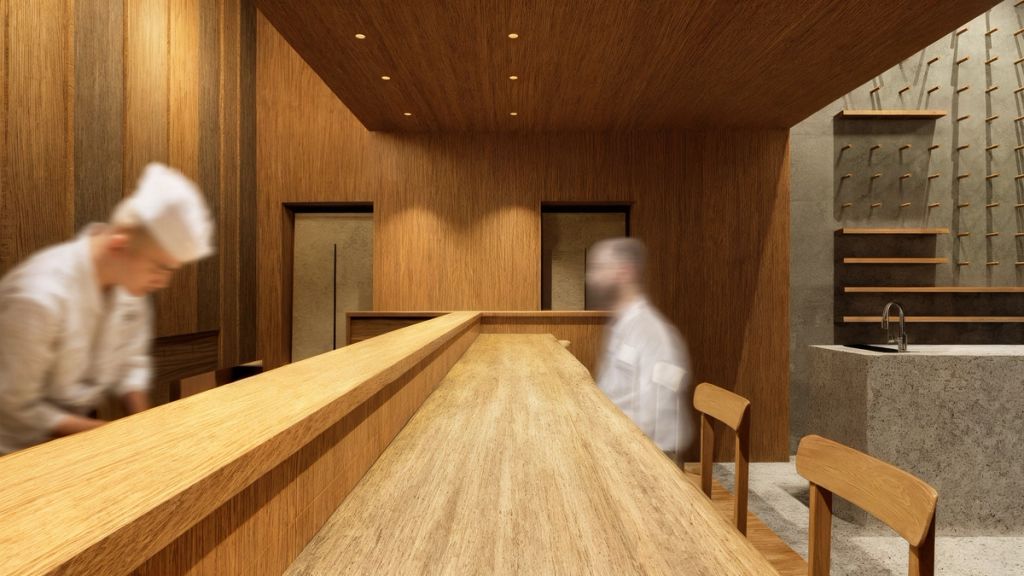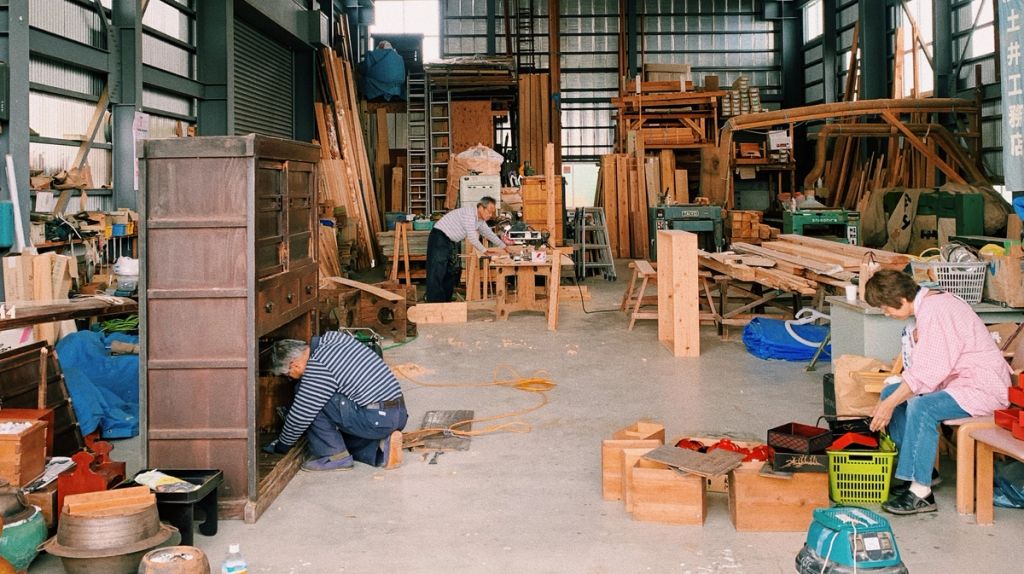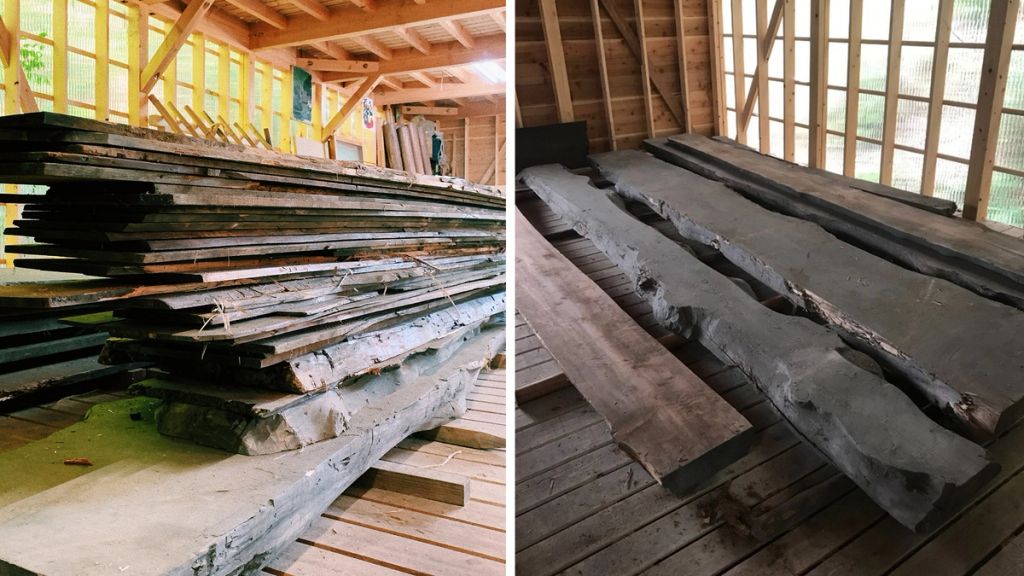Ori
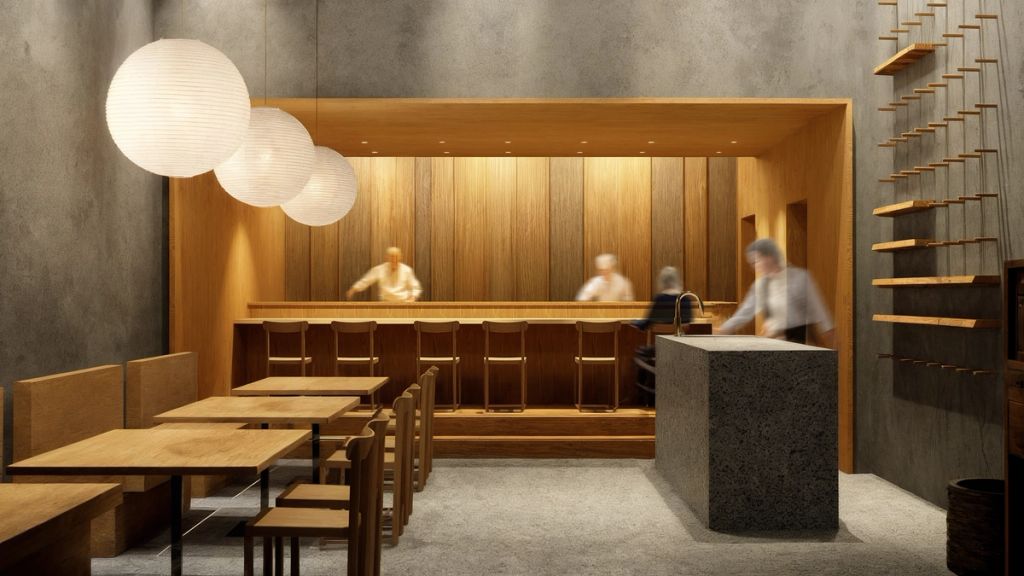
Date: August 2025 Location: Kuwait City, Kuwait Area: 35m2 Function: Restaurant Status: Built Client: Ori
Ori is an interior design project for a new sushi restaurant in Kuwait City. The interior pairs Japanese minimalism with a sense of history, avoiding staged décor by using genuine vintage materials sourced from Japan. Working with a Kyoto carpenter who has long salvaged timber and artefacts from dismantled houses, these pieces were carefully curated and shipped to Kuwait to form the foundation of the space. The restaurant offers a contemporary dining setting where authentic Japanese craft and cultural memory meet a new context, creating an atmosphere defined by simplicity, depth, and the journey of materials across borders.
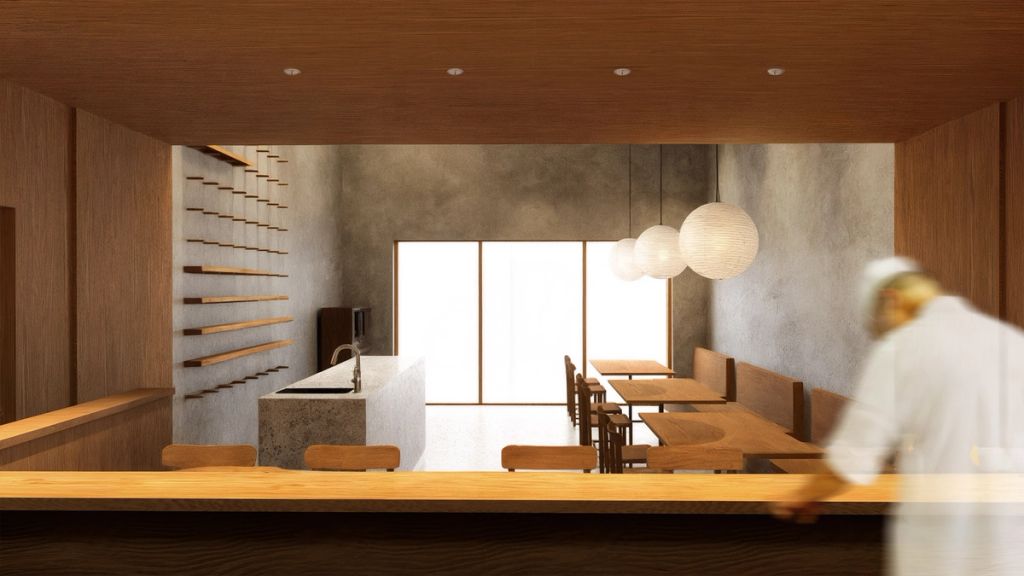
Ori has developed from a client’s wish to create a space that is minimal in character yet rooted in a sense of time. Instead of imitating “vintage” style through graphics or staged décor, the design sought to embed genuine history into the environment. This ambition became possible through a longstanding relationship with a master carpenter in Kyoto, who for decades has salvaged timber and artefacts during the demolition of traditional houses. Too often in Japan, such elements are considered obsolete and disposed of, despite their extraordinary material and cultural worth. His warehouse of forgotten pieces became the foundation of Ori. The client’s plan to import equipment and furniture directly from Japan included hiring a shipping container. This logistical decision opened a rare opportunity: the container also became the vessel for transporting these salvaged elements across continents, allowing objects once deemed valueless to acquire new life and meaning in Kuwait. The most remarkable of the collection were Hinoki (Japanese cypress) boards that had been stored untouched for decades, some more than 200 years old. Their surfaces, once covered with dust, were gently cleaned and polished to reveal timber that remains structurally sound and visually striking. Each board carries a different degree of ageing, offering a spectrum of tones that colour the restaurant’s interior with natural variation. Design decisions grew from the physical qualities of the materials themselves. A thick Hinoki slab became the sushi counter’s tabletop — the central stage for dining and cooking. Thinner boards were applied to the wall surface behind the chefs, where their grain and patina provide a textured backdrop. Other artefacts, curated from the carpenter’s collection, were integrated throughout the space. The entire interior was conceived as a kind of box, both containing and framing these relocated treasures. The project name, Ori (折), refers to the Japanese word for a folded or boxed gift, and in culinary tradition also signifies boxed sushi. The symbolism extends across multiple layers: the wooden counter that frames the act of dining; the container that carried forgotten materials from Kyoto to Kuwait; and the idea of the restaurant itself as a gift of cultural exchange. Beyond the immediate atmosphere of the space, Ori demonstrates how relocation alone can alter the value of objects. Materials once seen as waste in one context acquire a renewed dignity in another, without physical alteration. It is a statement on reuse that does not depend on transformation, but on shifting relationships between place, material, and meaning. Since opening in 2024, Ori has become one of Kuwait City’s most sought-after dining experiences. Its success has led to a planned extension, due to open in 2025, continuing the journey of objects across borders and furthering the life of materials that might otherwise have been lost.
